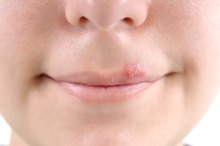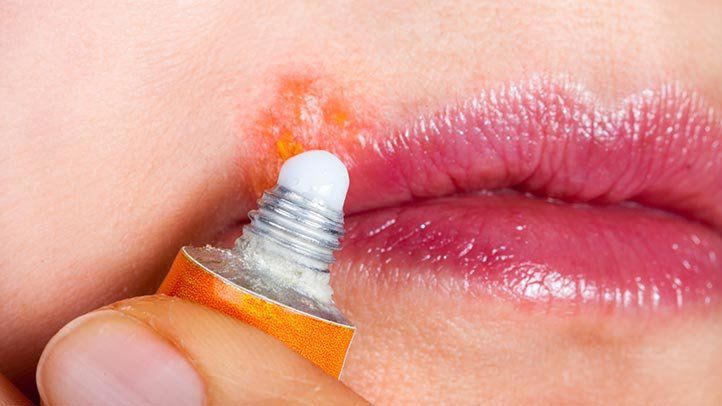
A cold sore is the symptom of an ongoing infection. It usually recurs in the same area, but there is no set time when it will appear. Before the sore appears, most people experience itching or tingling. Then, the outbreak will occur as a cluster of small blisters. Some individuals experience pain, burning, or tenderness in the area. Eventually, the blisters will break and the infection will disappear.
The first two to three days after an outbreak of cold sores will be filled with pain, and 85% of people experience this during the first few days. As the infection progresses, clumps of red, fluid-filled blisters will appear on the lip. These blisters are a result of the virus multiplying and the body fighting back, and should not be a cause for alarm. Once these blisters have formed, they will be difficult to treat.
The duration of a cold sore outbreak is variable. Some people experience a shorter duration than others. The most important thing is to avoid prolonged exposure to sunlight. If you cannot avoid a direct contact with the sore, you should not share objects with it. You should also avoid kissing and hugging people with cold sores. Moreover, do not use medicine that can worsen your condition. If you have already begun treatment, the next step is to take precautionary measures and get yourself checked.
Although cold sores cannot be cured, it is possible to prevent them. A simple cure will lessen the severity of the symptoms and lessen the number of outbreaks. However, it’s important to remember that despite how effective antiviral creams are, they won’t work if you don’t start treatment immediately. Instead, you should keep yourself clean and avoid touching the sore’s surface. It’s best to stay home if you are suffering from a cold sore.
You can’t prevent a cold sore from developing. But you can control the number of outbreaks by avoiding the triggers and preventing further infections. By following these simple guidelines, you can prevent a cold sore outbreak from recurring. It is also vital to know how to avoid spreading the virus and limiting the frequency of your outbreaks. The more common causes of a cold sore are stress, excessive alcohol use, and poor diet.

You should never touch your cold sore if you are pregnant or breastfeeding. The baby’s immune system is too immature to fight the virus. If you’re pregnant, it is essential to stay away from public spaces and stay home. The only way you can prevent a cold sore from coming back is to prevent it from spreading. If you have a cold sore, you should try to get it as early as possible. If you have a cold sore outbreak, you’re best to seek medical advice from a dentist or healthcare provider.
The first two days after a herpes outbreak are the most uncomfortable and embarrassing phase for a person. Approximately 85% of patients develop symptoms around the lips in the first few days. The next two days are a period of pain, swelling and discomfort. Most of these symptoms will disappear after the first few days. You’ll spend the next few days in bed avoiding the sun and using sunscreen. When ulcers are painful, site https://healthpacbulletin.org/
may recommend medication.
Herpes is usually caused by HSV, a virus that causes ulcers. A herpes outbreak can cause spreading redness and fever. It is important to wash your hands regularly to avoid cold sores. Aspirin can also help with pain. If you have herpes, you should avoid kissing babies or use a pacifier. A warm, clean bath can help soothe the pain.
Herpes treatment should be started as soon as possible after an outbreak occurs. Local anesthetics, including ibuprofen, can be applied to the affected area. If you’re exposed to the sun, use sunscreen and lip balm with SPF 30 to protect yourself from sunburn. You should avoid acidic foods as they can aggravate the pain. Good treatment should be based on your personal needs and preferences.